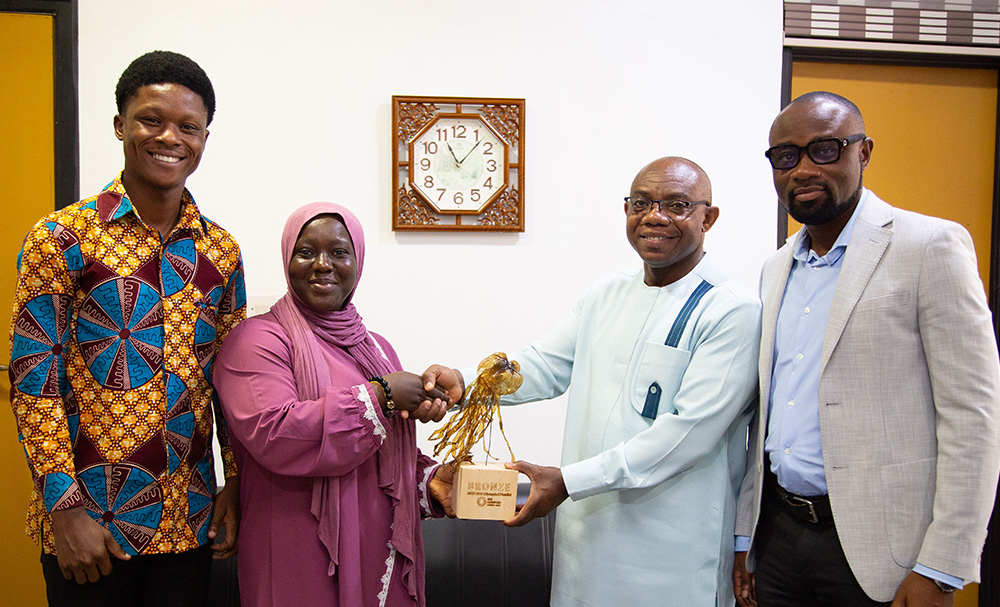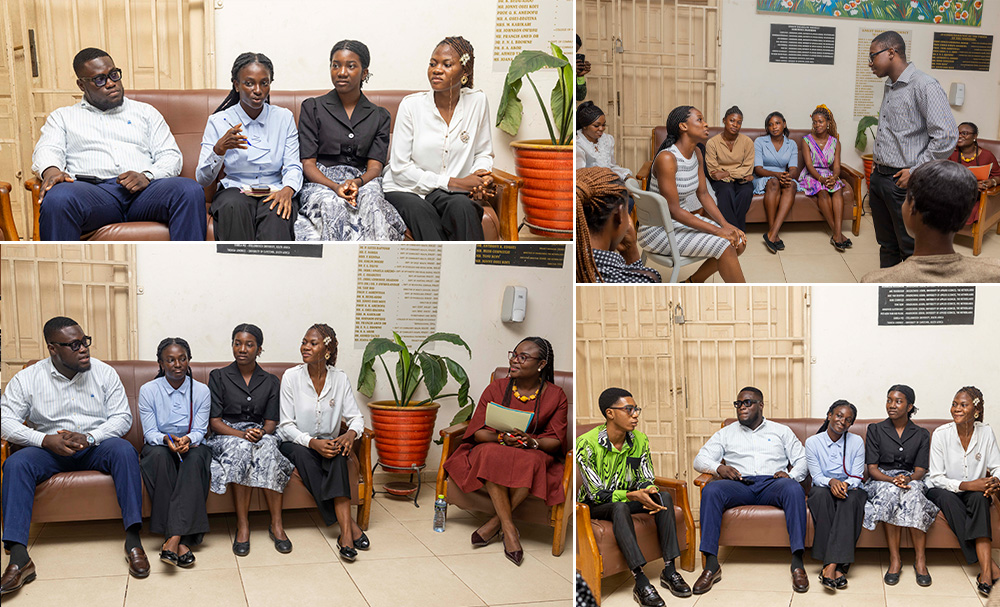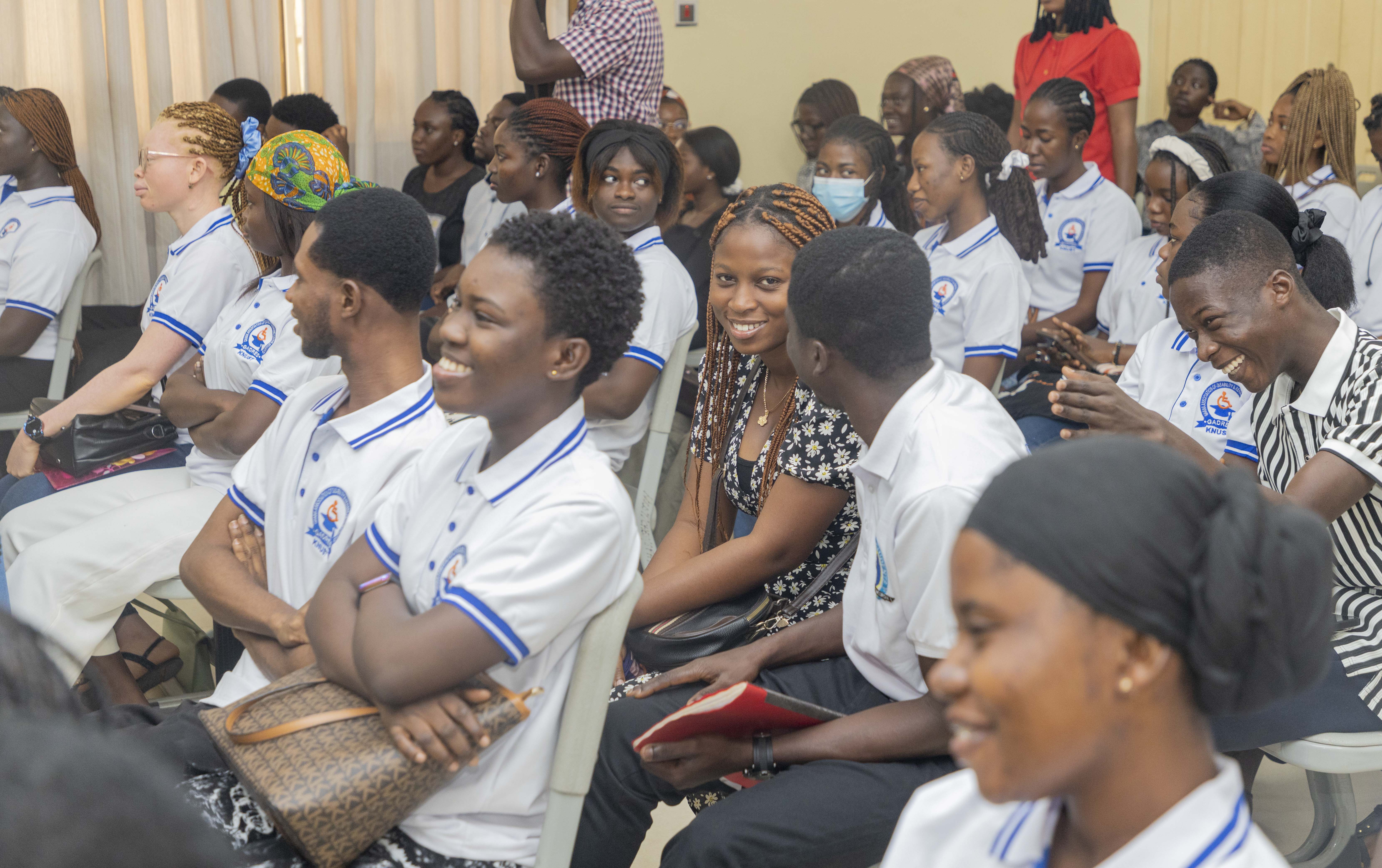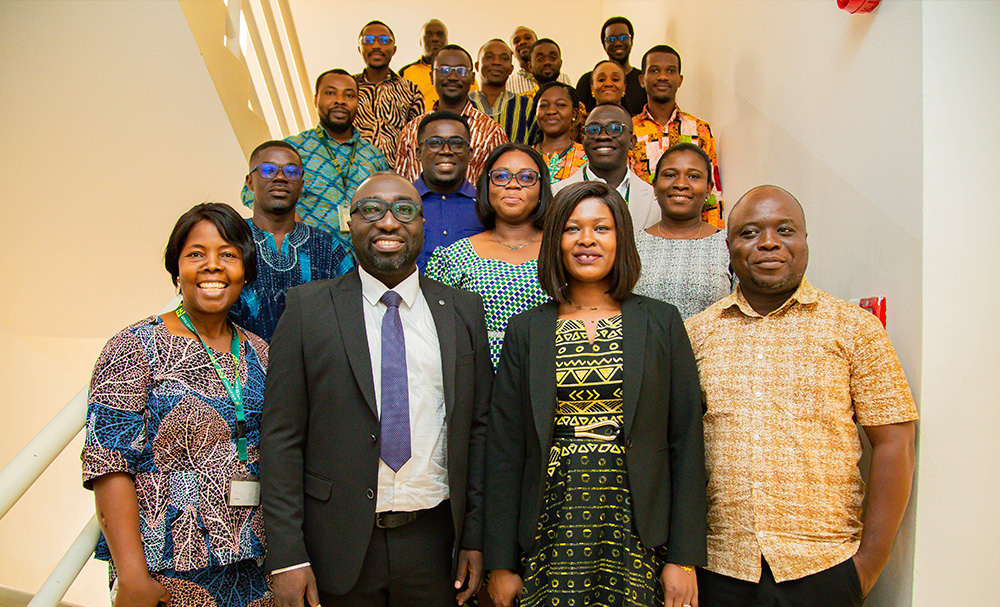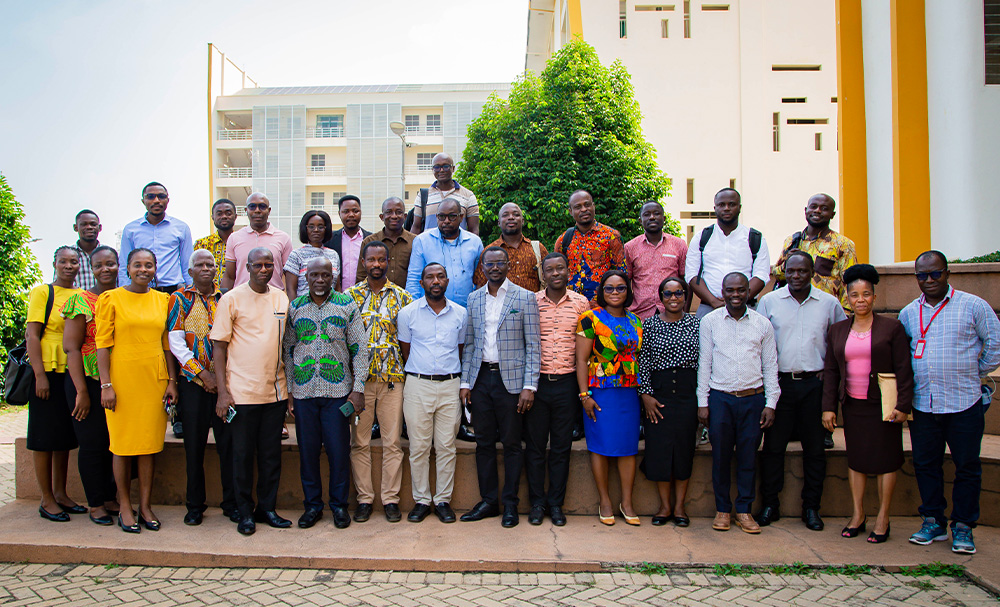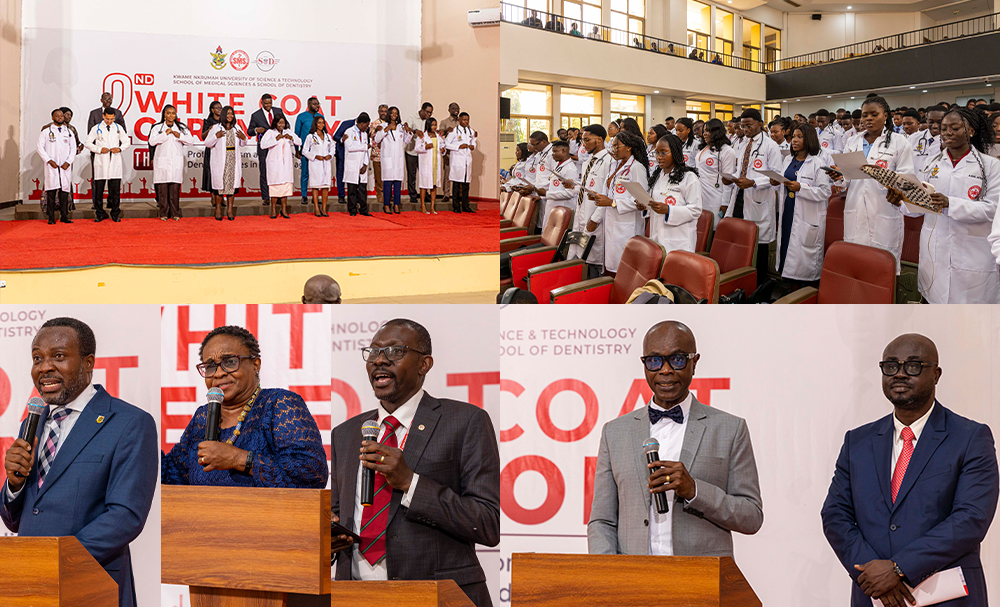KNUST College of Health Sciences Holds Problem-Based Learning (PBL) Orientation for Clinical Students of SMS
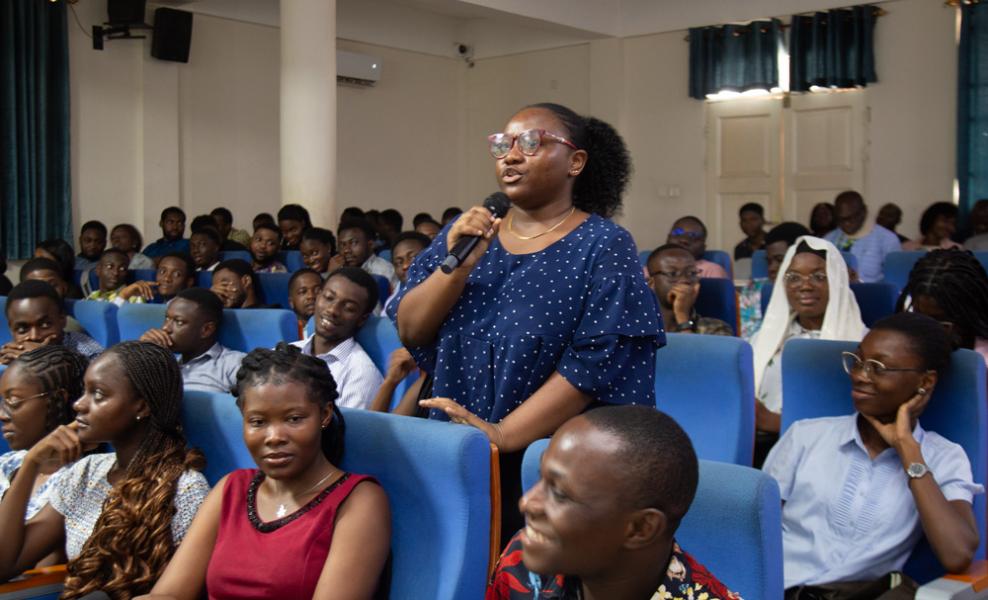
On January 8, 2025, the College of Health Sciences (CHS) at Kwame Nkrumah University of Science and Technology (KNUST) held an orientation for clinical students at the SMS Auditorium, Boadi Medical Enclave, to introduce Problem-Based Learning (PBL). This new approach will be officially integrated into the College’s curriculum in 2025.
Problem-based learning (PBL) is an innovative teaching method that shifts the focus from traditional lectures to student-driven, real-world problem-solving. Instead of passively receiving information, students will work in small groups to tackle complex health problems, fostering skills in critical thinking, collaboration, and practical application of knowledge.
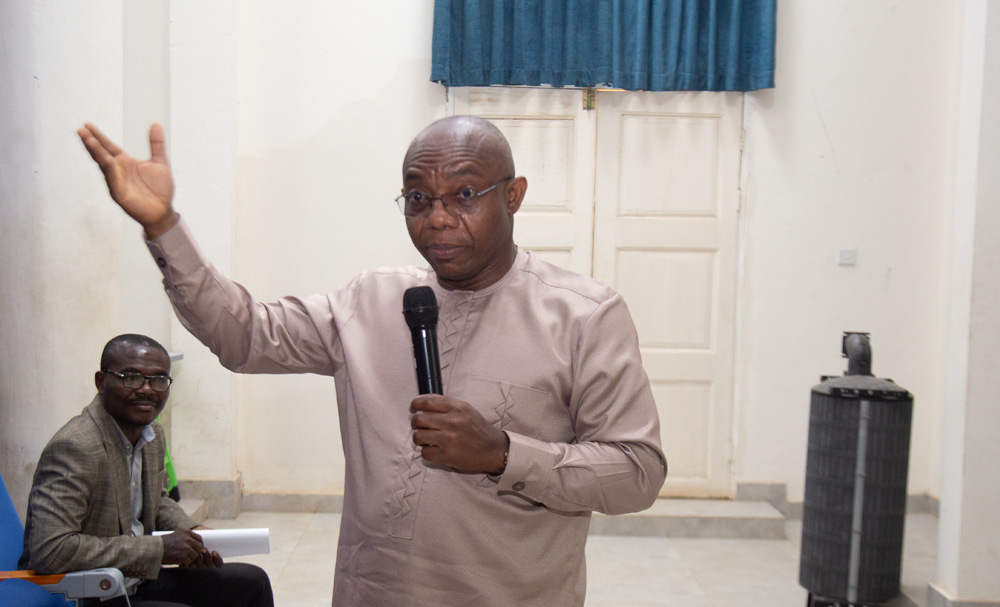
Professor Christian Agyare, Provost of the College of Health Sciences, in his address, expressed his strong support for the PBL initiative. He explained that healthcare education must evolve to meet the growing demands of the profession. “We must prepare our students with not only knowledge but also the critical thinking and teamwork skills necessary to solve real-world healthcare challenges,” he stated.
Professor Agyare emphasized that while traditional lecture-based learning is important, it is no longer enough to prepare students for the realities of patient care fully. "PBL encourages students to actively engage, think critically, and collaborate to find solutions,” he said. “This approach will ensure they are ready for the challenges they will face in healthcare.”
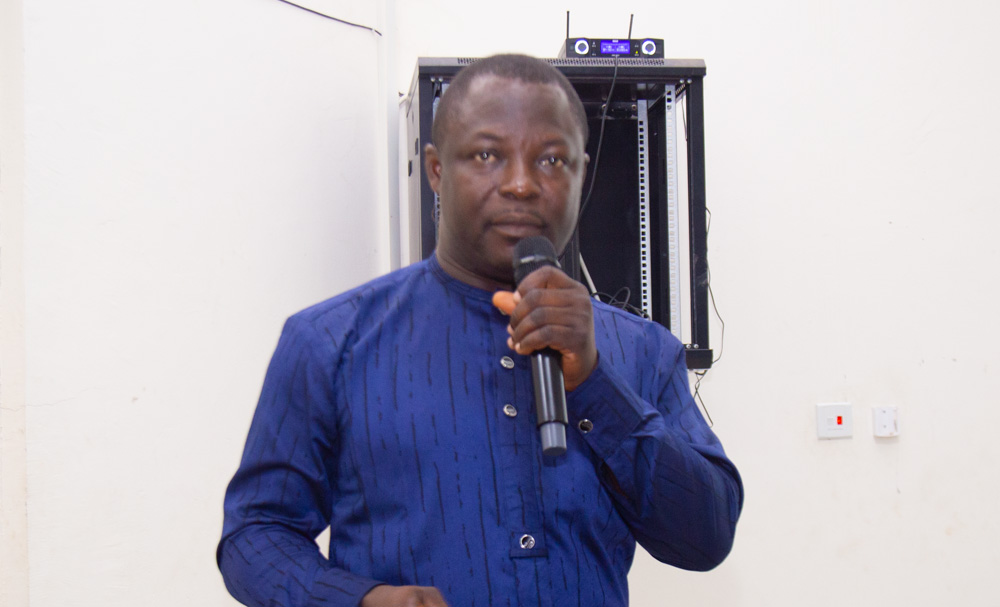
Dr. Kwabena Dankwa, a facilitator from the University of Cape Coast’s School of Medical Sciences, also spoke about the benefits of PBL, sharing his excitement about the potential impact it will have on the College. Professor Isaac Ayensu, the PBL Coordinator at CHS, echoed these sentiments, describing the adoption of PBL as a significant step in improving the quality of health education at KNUST.
In closing, Professor Christian Agyare urged students and faculty to embrace PBL fully. “This is more than just a new teaching method—it is a necessary step in shaping the future of healthcare education,” he said. “Together, we can equip our students with the skills they need to make a real impact in the healthcare field.”
The College of Health Sciences at KNUST is excited to see how PBL will shape the next generation of healthcare professionals, equipping them with the practical skills needed to improve patient care
